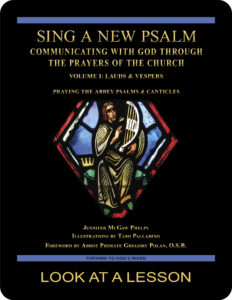gracious
 In the book of Exodus, God outlines how he wants his people to treat others based on how he has treated them. The book of Exodus 22:26 (NABRE) concludes with the statement “If he cries out to me, I will hear him; for I am compassionate.” In this translation, it’s easy to miss some of the connection between this concept and the New Testament.
In the book of Exodus, God outlines how he wants his people to treat others based on how he has treated them. The book of Exodus 22:26 (NABRE) concludes with the statement “If he cries out to me, I will hear him; for I am compassionate.” In this translation, it’s easy to miss some of the connection between this concept and the New Testament.
The Hebrew word translated here as “compassionate” is חַנּוּן (channuwn), an adjective that’s related to the Hebrew word that means “to be gracious” or “to favor.” The underlying concept here is fairly well equivalent to the Greek χάρις (charis), which typically is translated as “grace.” In the context of this passage from the book of Exodus, the idea of God’s favor is especially significant because the LORD just has rescued the Israelites from slavery in Egypt and called them to be his people, an enormous sign of his favor.
How do you think the meaning of this passage changes when God is viewed as gracious rather than as compassionate? How have you experienced God’s favor in your life?
related topics: economy of grace; favor with God; grace
you also may like Volume I of our Psalms study
 Sing a New Psalm: Communicating with God Through the Prayers of the Church—Volume I: Lauds & Vespers provides an in-depth look at Psalms prayed in morning and evening liturgies. (Volume II, set for publication in 2024, looks at Vigils, Day Prayer & Compline.) The study is based on The Abbey Psalms and Canticles, a translation prepared by the Benedictine monks of Conception Abbey and published by the United States Conference of Catholic Bishops (USCCB). Click on the book’s cover to view a sample lesson.
Sing a New Psalm: Communicating with God Through the Prayers of the Church—Volume I: Lauds & Vespers provides an in-depth look at Psalms prayed in morning and evening liturgies. (Volume II, set for publication in 2024, looks at Vigils, Day Prayer & Compline.) The study is based on The Abbey Psalms and Canticles, a translation prepared by the Benedictine monks of Conception Abbey and published by the United States Conference of Catholic Bishops (USCCB). Click on the book’s cover to view a sample lesson.
 Click on the picture of the statue of Moses with horns (above) to learn more about Lost in Translation. A new entry is archived each Monday. Contact us to receive Lost in Translation by email every week. You may use any of the contact links on our website to ask Matthew a question.
Click on the picture of the statue of Moses with horns (above) to learn more about Lost in Translation. A new entry is archived each Monday. Contact us to receive Lost in Translation by email every week. You may use any of the contact links on our website to ask Matthew a question.
